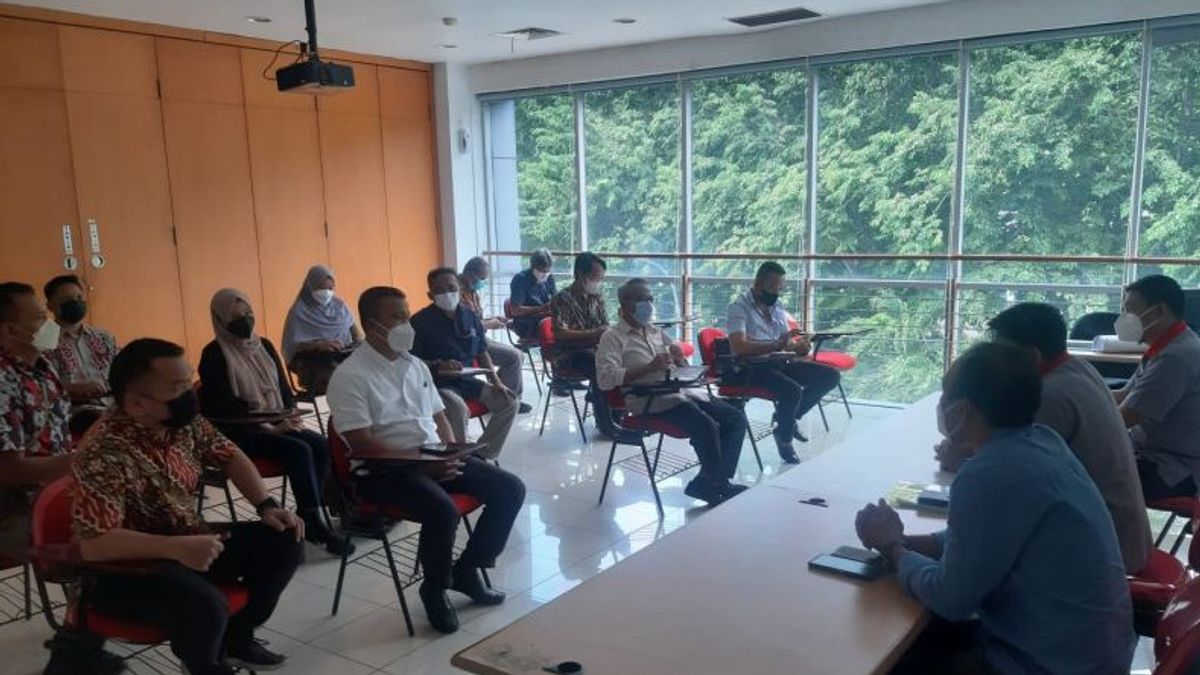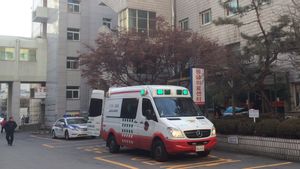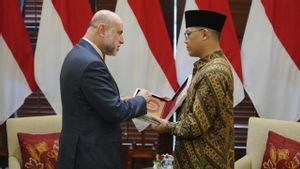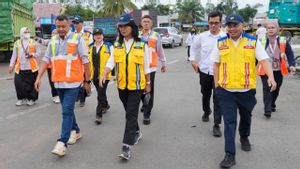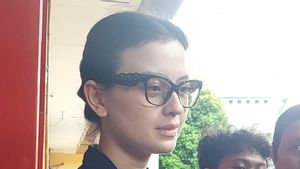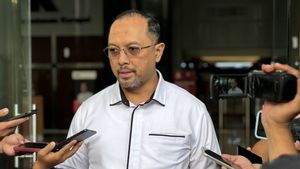JAKARTA - The Special Task Force for Corruption Prevention (Satgasus) of the Criminal Investigation Unit of the Indonesian National Police went to the regions to conduct studies and analyzes related to the problem of scarcity of packaged and bulk cooking oil.
The team led by former Corruption Eradication Commission (KPK) investigator Harun Al Rasyid went to East Java. The team visited several cooking oil factories/producers, both those with CPO (crude palm oil) producing plantations and factories without CPO producing plantations, or those with small percentages of CPO.
"This activity is based on the order of the National Police Chief in order to maintain the security of supply/availability of cooking oil and price stability in the market, especially ahead of Ramadan and facing Eid Al-Fitr 1443 Hijriah," Harun said in a written statement quoted by Antara, Friday, March 25.
The Bareskrim Task Force Team consisting of Yudi Purnomo, Herbert Nababan, Ronald Paul, Praswad Nugraha, Nita, Yulia Fuada, and Wald went down to conduct a study in East Java on Thursday (24/3). The team was accompanied by the East Java Regional Police, the trade office, the Food Security Task Force, and the local agriculture office.
"The team also made visits to packaged cooking oil distributors and bulk cooking oil distributors in order to identify the real problem," said Harun.
During his visit to the cooking oil factory/producer, Harun said that the team had analyzed and studied the production amount of each manufacturer/producer, then observed how much cooking oil was distributed to distributors in East Java.
The team also reviewed and traced information from distributors regarding the flow of packaged and bulk cooking oil distributed to out-of-market retailers, inside-market retailers, wholesalers, and local modern markets. For the national modern market, the distribution is carried out directly by the producer/manufacturer.
From the search results, said Harun, this picture of the supply chain to the production and distribution chain is very important to unravel what actually happened to the cooking oil market.
"In East Java itself, it is now entering a stable condition. Efforts are made to maintain this condition in the future," said Harun.
From that meeting, said Harun, informally the team has obtained commitments from producers and distributors. However, the team has special notes on the results of a review of market conditions and retail production to the distribution of cooking oil.
The team has also submitted input and improvement efforts to the main distributors. How producers and distributors guide the policies issued by the Government through the Minister of Industry Regulation Number 8 of 2022, which is then derived more technically by the Perdirjen Agro Industry Number 1 of 2022. "These two regulations must continue to be intensively disseminated, especially to distributors," he said. From the results of this visit to East Java, he continued, the Department of Industry and Trade will immediately move to more intensively call actively distributors who have not met the provisions and/or compliance with Perdirjen Agro Industry Number 1 of 2022, among others, obedience in the installation of banners/boards. a clear name that the person concerned is a distributor, then the criteria for consumers who can buy oil from the distributor.
"This includes the participation of distributors in monitoring and knowing the profiles of consumers who are buyers/subscribers," said Harun.
The English, Chinese, Japanese, Arabic, and French versions are automatically generated by the AI. So there may still be inaccuracies in translating, please always see Indonesian as our main language. (system supported by DigitalSiber.id)
